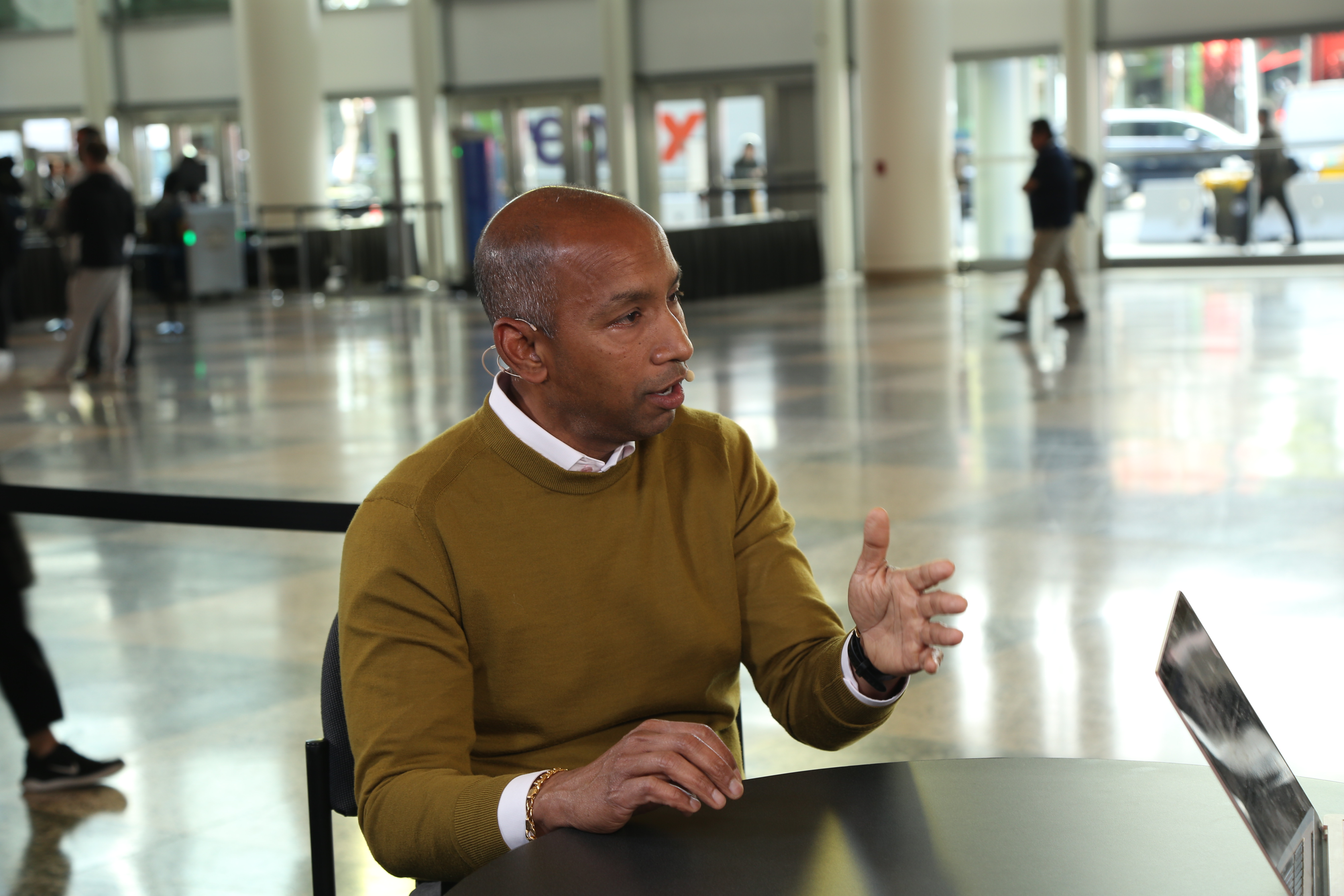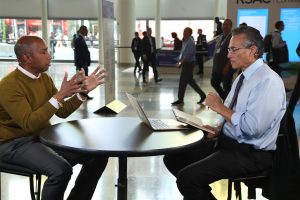 SECURITY
SECURITY
 SECURITY
SECURITY
 SECURITY
SECURITY
Generative artificial intelligence and artificial intelligence agents are set to automate hundreds of business processes, but they also pose a threat to identity security.
At SailPoint Technologies Holding Inc., ensuring the identities of organizations are securely governed, especially when AI is involved, remains the core mission. The company is focused on preparing its clients for the agentic wave.

SailPoint’s Chandra Gnanasambandam talks with theCUBE about the issues around agentic adoption.
“Just like how you manage a human workforce in terms of the applications they can access and the data they can access, you have to … govern and manage these agents because they’re actually a digital workforce,” said Chandra Gnanasambandam (pictured), chief technology officer and executive vice president of product at SailPoint. “Mapping what an agent can do to the same permission that the human that it is representing … it is a hard engineering problem to solve.”
Gnanasambandam spoke with theCUBE’s Dave Vellante at the RSAC 2025 Conference, during an exclusive broadcast on theCUBE, SiliconANGLE Media’s livestreaming studio. They discussed SailPoint’s identity security platform and the impact of agentic AI on cybersecurity. (* Disclosure below.)
Companies are already faltering on AI adoption because of flawed data management — add in security for an organization’s many identities and the issue becomes a crisis, according to Gnanasambandam. He estimates that of the largest 10,000 corporations, only about 15 percent are at full maturity when it comes to managing human identity.
“If you’re a machine, for training, if you’re a foundation model being trained, you’re not going through an application, you’re going straight to data,” he explained. “And increasingly, machines and agents go straight to data. And so you have to now govern the human to application chain, human to data chain, machine to data chain [and] agent to machine to data chain.”
SailPoint Atlas, a unified platform that applies AI to identity security, helps companies manage complex security issues with a scalable architecture. This flexibility is especially important for large corporations executing critical business processes on older platforms.
“If it were all about accessing the modern cloud platforms, it is actually an easier problem to solve,” Gnanasambandam said. “All the startups have connectors and have experience in managing access to the modern cloud platforms. When you go to real large corporations, the cloud platforms are a core part of it, but they have lots of older platforms and older applications. And you’ve got to be able to govern access to them and manage all the complexities.”
SailPoint is also building the world’s largest identity graph, with the goal of enabling organizations to put all its identities in one place, and has two of its own AI agents on the market. Now that the procedures for accessing data have changed, modern security solutions are essential.
“In the future, [agents are] going to go directly to data,” Vellante said. “We’re going to create processes essentially on-the-fly to meet the market conditions. But that’s an infinite number of possibilities there that have to be governed and secured … it was the responsibility of the application, it was a comfort domain and now it’s [the] wild west all over again.”
(* Disclosure: SailPoint Technologies Holding Inc. sponsored this segment of theCUBE. Neither SailPoint nor other sponsors have editorial control over content on theCUBE or SiliconANGLE.)
Here’s the complete video interview, part of SiliconANGLE’s and theCUBE’s coverage of the RSAC 2025 Conference event:
Support our mission to keep content open and free by engaging with theCUBE community. Join theCUBE’s Alumni Trust Network, where technology leaders connect, share intelligence and create opportunities.
Founded by tech visionaries John Furrier and Dave Vellante, SiliconANGLE Media has built a dynamic ecosystem of industry-leading digital media brands that reach 15+ million elite tech professionals. Our new proprietary theCUBE AI Video Cloud is breaking ground in audience interaction, leveraging theCUBEai.com neural network to help technology companies make data-driven decisions and stay at the forefront of industry conversations.